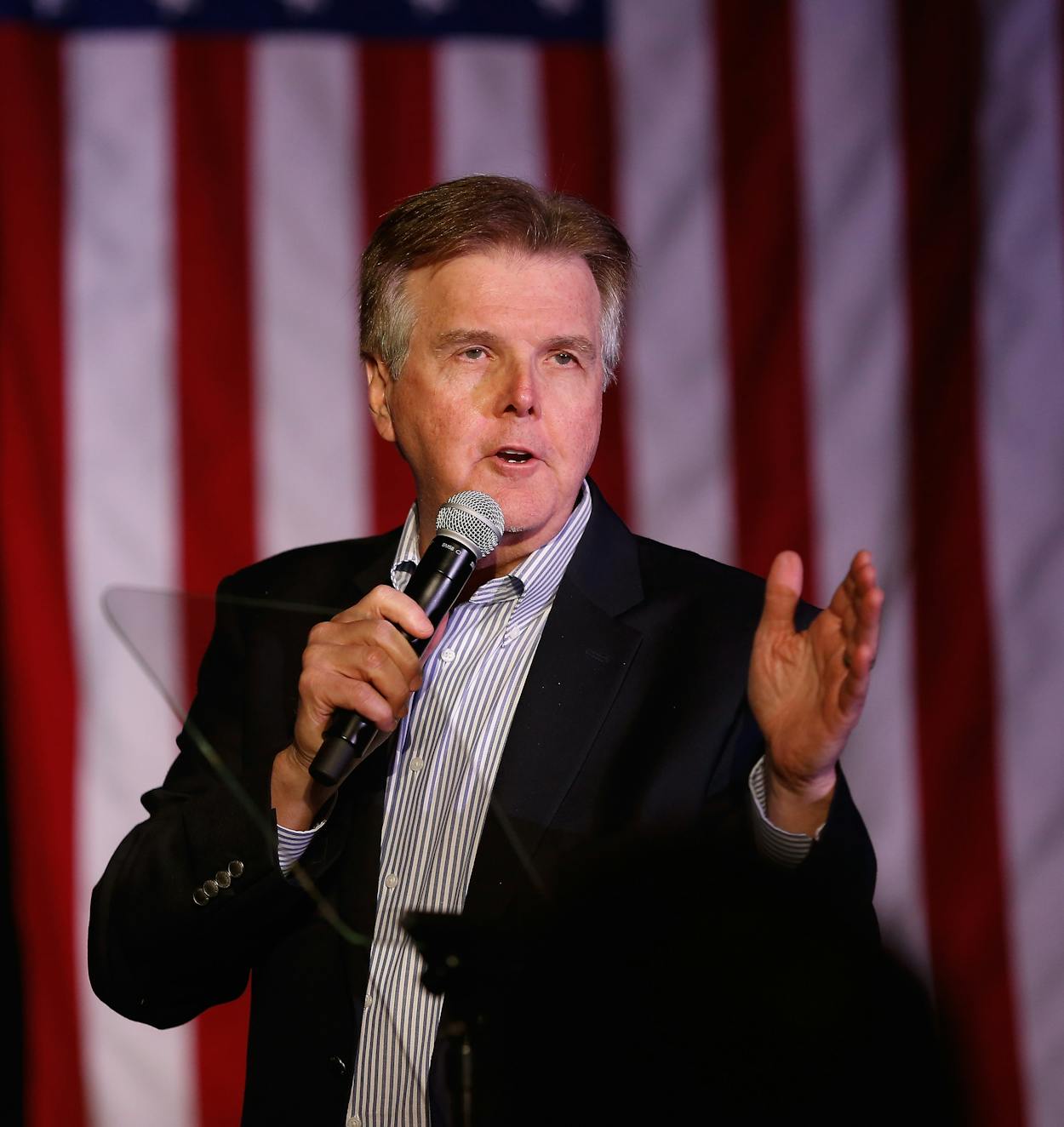Here are two starkly different legislative agendas for Tuesday:
The Senate State Affairs Committee will debate who can use what bathroom.
Meanwhile, House Public Education Committee will address how to put $1.6 billion more into public schools to help students and give some relief to taxpayers.
Lobbyists and government insiders keep referring to the House as the “adults in the room,” because Lieutenant Governor Dan Patrick has kept the Senate focused on social conservative issues. The House seems more determined to resolve problems that affect the everyday lives of Texas. The contrast between the chambers may never be more evident this session than on Tuesday.
The stage was set Monday when Patrick—ahead of the bathroom bill committee hearing on Tuesday—busted down one of the great walls of American government: church and state. He announced at a press conference that he is joining with organizations of Christian ministers in “Operation of One Million Voices” to pressure the Legislature into passing the so-called bathroom bill that limits restroom visitations in publicly owned buildings to the gender on the person’s birth certificate. Many major corporations, the National Football League, the National Basketball Association, and transgender rights activists say the legislation is discriminatory.
While the bathroom bill always has been a measure aimed at social conservatives, Patrick’s embrace of it as a Christian issue was a surprising step over the invisible wall that has separated church issues from state issues throughout American history. Patrick said he will be joined in his effort to pass the legislation by Vision America, Women on the Wall, Texas Values, and the U.S. Pastor Council.
“That’s one million voices that will be active to see that this legislation gets to the governor’s desk,” Patrick said.
John Graves, president of Vision America, said, “We’re very happy to announce, as the lieutenant governor said, over a million Christians that we’re going to educate and mobilize in this process.”
The Senate State Affairs Committee normally holds hearings in the Senate chamber, where there are 490 seats in the gallery. The hearing on Senate Bill 6, known as the bathroom bill, will be held in an extension committee room with two overflow rooms. The total capacity of the three rooms is 216, according to the state fire marshal’s office. Patrick promised to have more than 300 pastors at the hearings.
There is very little left in the bill that has much to do with bathrooms. The bill does not regulate bathrooms in businesses such as grocery stores or department stores, nor does it regulate bathrooms at sports facilities. It provides some regulation of public school restrooms, but an Obama administration order on that recently was overturned by the Trump administration. The only place it actually regulates bathrooms is in government-owned buildings, which includes university campuses.
But the main thrust of the bill is that it overturns five municipal anti-discrimination ordinances. “We can’t have a superintendent here or a superintendent there or a city here or a city there decide their own policy the vast majority of citizens don’t want enacted,” Patrick said. The no-men-in-women’s-bathrooms theme was used in a 2015 referendum to overturn Houston’s anti-discrimination ordinance.
Across the rotunda, state Rep. Dan Huberty said it was only coincidental that the House will hold hearings on school finance reform the same day the Senate hears the bathroom bill. However, the House suspended its own rules to make the hearing occur with just one day’s notice. Rep. Jonathan Stickland objected to the short notice, but was thwarted by the House leadership. Stickland complained that school officials in his district would not have time to prepare and travel to the hearing.
The House, meanwhile, in its apparent effort to show itself as the chamber dedicated to solving everyday problems for Texas, today will begin hearings on putting $1.6 billion into the public schools to ease property taxes in a school finance system that is out of whack. The House legislation would increase spending from
Huberty’s plan increases state spending in all school districts from about $5,140 a year per student to $5,350. But it is especially helpful to districts with high property wealth, where tax revenues are subject to state recapture for redistribution to poorer districts. The plan lowers the local governments’ share of recapture by $163 million in 2018 and $192 million in 2019. There also is funding in the plan to help 154,000 students diagnosed with the learning disorder dyslexia.
“We can do this this session,” said Huberty, a Republican from Humble.
Patrick, who wants passage of a school voucher plan, has said any school finance reform is too difficult to do in a regular legislative session.






